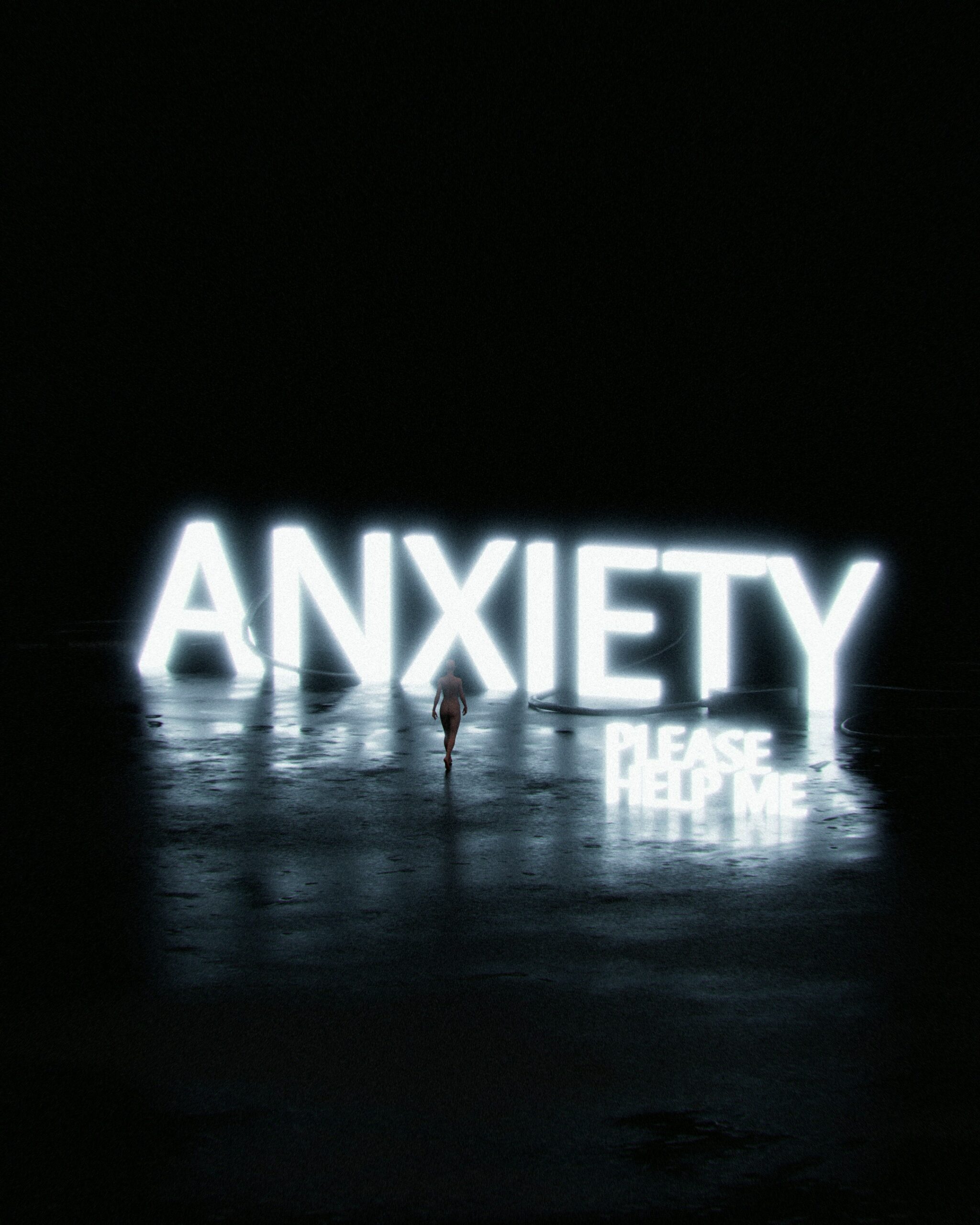 Through my work in the social work field, I have come to understand the impact that anxiety has on children. I know the challenges parents face when their children are struggling with anxiety. It can be overwhelming not understanding or knowing how to help, but with the right guidance, you can provide the support your child needs to manage their anxiety effectively. Let’s delve into the impact of anxiety on children.
Through my work in the social work field, I have come to understand the impact that anxiety has on children. I know the challenges parents face when their children are struggling with anxiety. It can be overwhelming not understanding or knowing how to help, but with the right guidance, you can provide the support your child needs to manage their anxiety effectively. Let’s delve into the impact of anxiety on children.
Understanding Anxiety:
First and foremost, it’s essential to understand what anxiety is and how it manifests in children. Anxiety is a natural response to stress, but when it becomes excessive and interferes with daily life, it can be a cause for concern. Children may experience physical symptoms such as stomachaches, headaches, or difficulty sleeping, as well as emotional symptoms like fear, worry, or irritability. It’s important to recognize that anxiety can vary greatly in how it presents itself, depending on the child’s age, temperament, and individual circumstances.
Create a Safe Environment:
One of the most important things you can do as a parent is to create a safe and supportive environment for your child. Encourage open communication and let them know that it’s okay to talk about their feelings. Avoid dismissing their concerns or telling them to “just relax,” as this can invalidate their experiences. Instead, validate their feelings by acknowledging their fears and providing reassurance. A safe environment also means being mindful of the emotional atmosphere at home. Children are sensitive to the stress and anxiety of others around them, so it’s beneficial to manage your own stress levels and model healthy coping mechanisms.
Teach Coping Strategies:
Teaching your child coping strategies can empower them to manage their anxiety effectively. Encourage activities such as deep breathing exercises, mindfulness, or journaling to help them calm their mind and body when they’re feeling overwhelmed. Practice these techniques together so they become familiar and easier to use in times of need. For instance, deep breathing exercises can be as simple as inhaling for four counts, holding for four counts, and exhaling for four counts. Mindfulness practices, like guided imagery or progressive muscle relaxation, can also be highly effective. Journaling allows children to express their worries and fears on paper, which can help in reducing the intensity of their anxiety.
Promote Healthy Habits:
Promoting healthy habits is crucial for managing anxiety. Ensure your child gets regular exercise, eats a balanced diet, and gets enough sleep each night. These lifestyle factors can have a significant impact on their overall well-being and resilience to stress. Physical activity, in particular, is known to reduce anxiety levels by releasing endorphins, the body’s natural stress relievers. A balanced diet rich in fruits, vegetables, lean proteins, and whole grains can support brain health and stabilize mood. Consistent sleep routines help regulate the body’s stress response and improve emotional regulation. Additionally, limiting caffeine and sugar intake can prevent exacerbation of anxiety symptoms.
Set Realistic Expectations:
It’s essential to set realistic expectations for your child, taking into account their individual needs and abilities. Avoid putting too much pressure on them to excel or achieve perfection, as this can contribute to feelings of anxiety. Instead, focus on praising their efforts and celebrating progress, no matter how small. Understand that every child has a unique pace of learning and development, and comparing them to others can be detrimental. Encourage them to set achievable goals and break tasks into smaller, manageable steps. This approach not only reduces anxiety but also builds confidence and a sense of accomplishment.
Seek Professional Help:
If your child’s anxiety persists or interferes significantly with their daily life, don’t hesitate to seek professional help. A therapist or counselor who specializes in working with children can provide additional support and guidance tailored to your child’s needs. Cognitive-behavioral therapy (CBT) is one of the most effective treatments for anxiety in children, helping them to identify and challenge negative thought patterns and develop coping skills. Sometimes, medication may be prescribed in conjunction with therapy, depending on the severity of the anxiety. Early intervention is key in preventing anxiety from becoming more entrenched and impacting other areas of life, such as academic performance and social relationships.
Fostering a Positive Mindset:
Encouraging a positive mindset can significantly help children manage their anxiety. Teach them to reframe negative thoughts and focus on their strengths and achievements. Positive affirmations and visualizing success can help build self-confidence and resilience. For example, if your child is anxious about an upcoming test, help them reframe their thoughts from “I can’t do this” to “I have studied hard, and I can handle this.” Additionally, fostering gratitude by having your child write down or share things they are thankful for can shift their focus from anxiety-provoking thoughts to positive aspects of their life.
Building a Support Network:
Building a support network is beneficial not only for your child but for you as well. Connect with other parents, join support groups, or seek resources from your child’s school or community organizations. Having a network of supportive individuals can provide valuable insights, share experiences, and offer encouragement. For your child, knowing that they have a circle of trusted adults and peers can provide a sense of security and reduce feelings of isolation. Encourage them to maintain social connections and participate in group activities, which can provide both distraction and enjoyment, helping to alleviate anxiety.
Understanding Triggers:
Identifying and understanding your child’s anxiety triggers is a crucial step in managing their anxiety. Triggers can be specific situations, environments, or activities that provoke anxiety. By recognizing these triggers, you can help your child prepare for or avoid them when possible. For example, if social situations trigger your child’s anxiety, gradually exposing them to these settings in a controlled and supportive manner can help them build tolerance and confidence. Keeping a journal of when anxiety episodes occur can also help in identifying patterns and triggers, allowing for more targeted interventions.
Empowering Your Child:
Empower your child by involving them in the process of managing their anxiety. Encourage them to take an active role in identifying what helps them feel better and developing their own coping strategies. This sense of agency can significantly reduce feelings of helplessness and increase their confidence in handling anxiety. Provide them with choices and involve them in decision-making processes, whether it’s choosing a relaxation technique to practice or deciding how to approach a challenging situation. Empowering your child fosters independence and resilience, essential qualities for managing anxiety throughout life.
Maintaining Consistency:
Consistency is key when supporting a child with anxiety. Maintain a routine that provides structure and predictability, which can be comforting for anxious children. Consistent bedtime routines, meal times, and study schedules help create a sense of normalcy and security. It’s also important to be consistent in your responses to their anxiety. Reacting calmly and consistently to their fears and worries reinforces a stable support system. Avoiding sudden changes and preparing your child for upcoming transitions can minimize anxiety-provoking uncertainty.
 Helping your child manage anxiety is a journey that requires patience, understanding, and support. For parents learning to understand the impact that anxiety has on children can help them create a safe environment, teach coping strategies, promote healthy habits, set realistic expectations, and seek professional help when needed. This can help parents empower their children to navigate their anxiety and thrive. Remember, you’re not alone in this journey, and together, we can better understand the impact of anxiety on children. Stay informed, stay involved, and stay compassionate. Your support is the most powerful tool in helping your child overcome anxiety and build a foundation for a healthy, fulfilling life.
Helping your child manage anxiety is a journey that requires patience, understanding, and support. For parents learning to understand the impact that anxiety has on children can help them create a safe environment, teach coping strategies, promote healthy habits, set realistic expectations, and seek professional help when needed. This can help parents empower their children to navigate their anxiety and thrive. Remember, you’re not alone in this journey, and together, we can better understand the impact of anxiety on children. Stay informed, stay involved, and stay compassionate. Your support is the most powerful tool in helping your child overcome anxiety and build a foundation for a healthy, fulfilling life.
Explore Our Services at Bright Idea Counseling
At Bright Idea Counseling, we offer a wide range of therapy services tailored to meet your unique needs. From individual and family therapy to specialized programs for stress management and mental health, our experienced team is here to support you every step of the way.
To learn more about how we can help you and your loved ones, click the link below.
Discover the Support Your Family Deserves
At Bright Idea Counseling, we understand that every family faces unique challenges and stresses. Whether you’re navigating the ups and downs of daily life or encountering more complex issues, our dedicated team is here to help.
Don’t face these challenges alone. Reach out to us today to learn more about our personalized therapy services and see how we can support your family’s journey toward well-being and harmony. Contact us now to schedule a consultation and take the first step towards a brighter tomorrow with Bright Idea Counseling.




